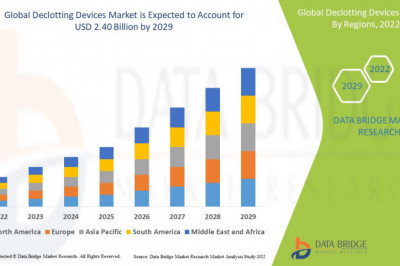views
Guide to Managing E-commerce Accounting services in Dubai
1. What Is E-commerce Accounting?
E-commerce, which involves conductingcommercial transactions online, is making huge inroads into the markets of traditionaltrading. Globally, about one in four people shop online, and in 2018 they spentabout 2.8 trillion US dollars doing so. And that spend is expected to grow to4.6 trillion USD by 2021.
2. Why Is E-commerce AccountingChallenging?
E-commerce is similar to self-drive cars.Both reach the same destination and perform the same function, without anyphysical human contact. And just as those driverless cars have to obey the samerules of the road as those with drivers, so e-commerce accounting has to adhereto the same accounting rules regarding tracking, recording, reconciling andreporting transactions as ground-based businesses.
3. What Happens About Transaction andInventory Checks and Data?
One of the biggest problems facing E-commercebusinesses is access to the necessary data, about transactions, inventory andthe costs of goods sold. That’s because, instead of involving transactionsacross a counter or at a checkout point in a shop, e-commerce sales go througha different chain of actions, and are sometimes never seen by the sellers.
Orders are placed online, paid for at thesite’s check-out, and then the product is packaged, shipped and delivered tothe buyer, sometimes by the supplier or manufacturer, or from large e-commerceplatforms the seller is partnering, like Amazon.
The same batch of goods can be situated atdifferent points in the distribution process, so making inventory managementdifficult. And while the software running the channel will record thetransactional data, and log changes to the often virtual inventory, thisinformation can only be retrieved from the back-end of the selling channel.
Keeping track of the 5% VAT required on certainsales in Dubai and the foreign transaction costs involved can also causeconfusion.
4. Can Software Help with E-commerceAccounting?
Specific software can take care of some of theaccounting and bookkeeping procedures involved in e-commerce accounting, liketracking expenses and income, as well as VAT liabilities. But using thissoftware involves knowing how to use it effectively, understanding the termsand processes used for digital marketing and sales, and learning how toretrieve the information gathered, record it and report on it.
When faced with these challenges, the bestway to manage e-commerce accounting in Dubai may require professional (anddigital ) assistance. This is especially vital for online businesses using morethan one channel, an operation that can be likened to running all the stores ina retail chain from one virtual outlet. Calling in accounting experts who canhandle traditional accounting in a digital world may be the best decision evermade.











